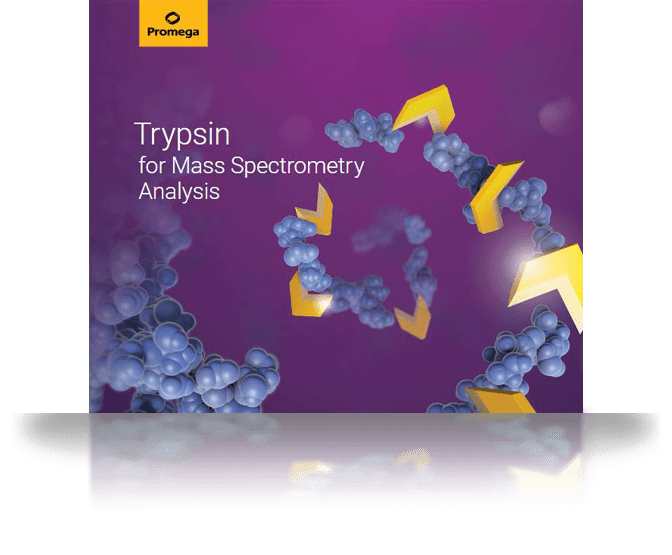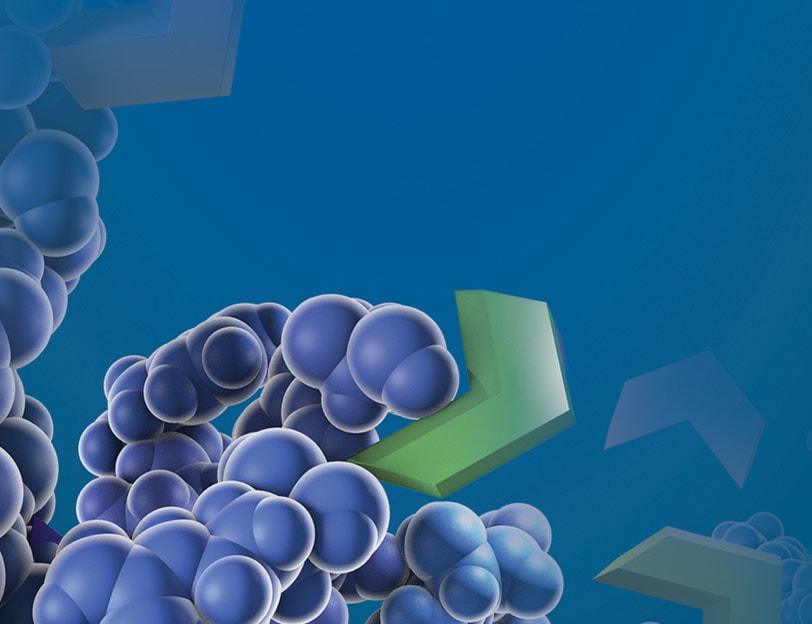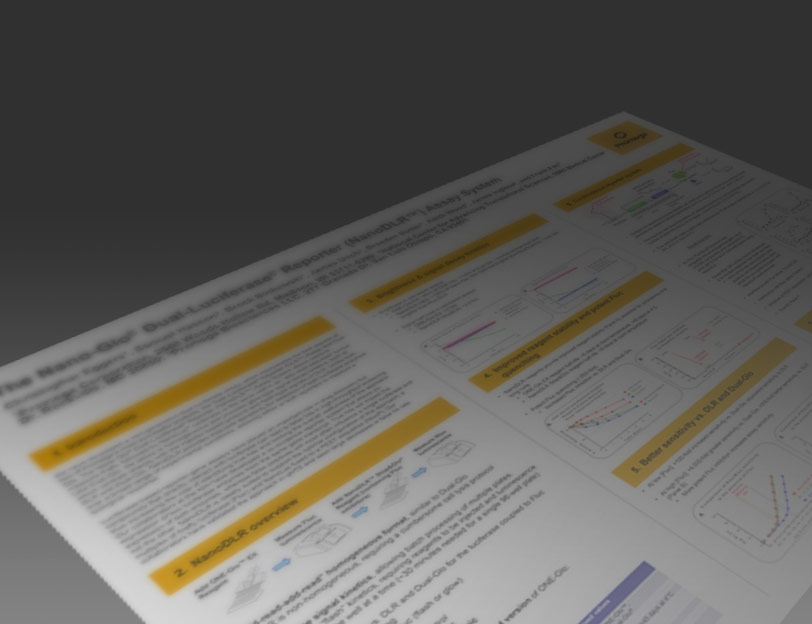Trypsin
Trypsin is a serine protease that specifically cleaves at the carboxylic side of lysine and arginine residues. The stringent specificity of trypsin is essential for protein identification, and it has become the gold standard for protein digestion to peptides for shotgun proteomics.
Trypsin Platinum, Mass Spectrometry Grade, is a recombinant protease designed for the users looking for accurate protein characterization with mass spectrometry and RP-HPLC-UV. Sequencing-Grade Modified Trypsin and Trypsin Gold, Mass Spectrometry Grade, have been modified by reductive methylation, yielding a highly active and stable molecule that is extremely resistant to autolytic digestion. The specificity of the purified trypsin is further improved by TPCK treatment, which inactivates chymotrypsin.
In addition, we offer a range of Trypsin formulations designed for specific applications, including Immobilized Trypsin for digestion on spin columns, Rapid Digest Trypsin for shortened proteolytic reaction times, and Trypsin/Lys C Mix for digestion of proteolytically resistant proteins.
Compare Features to Find the Right Trypsin for Your Needs
| Sequencing Grade Trypsin & Trypsin Gold | Trypsin/Lys-C | Rapid Trypsin & Rapid Trypsin/Lys-C | AccuMAP® Low pH Digestion Kit | Trypsin Platinum | |
|---|---|---|---|---|---|
| Digestion Efficiency | |||||
| Cleavage Specificity | |||||
| Digestion Time | |||||
| Artifact-Free Sample Preparation | |||||
| Autoproteolytic Stability | |||||
| Suggested Applications | • General proteomics • In gel digestion |
• Difficult proteins
• Quantitation |
• Rapid results • High throughput/ Automation |
• Peptide mapping • Minimize artifacts |
• Peptide mapping • Highest specificity |
+ - Suitable
+++ - Recommended
Filter By
Shop All Trypsin Products
Showing 5 of 5 Products
Need a takeaway summary of all our Trypsin products?
Download the Brochure “Trypsin for Mass Spectrometry Analysis”

Introduction to Promega Trypsin Formulations
Trypsin is the most widely used protease in mass spectrometry sample preparation due to its high proteolytic activity and cleavage specificity. Promega high-quality trypsin is derived from porcine trypsin and modified to give the highest proteolytic activity and cleavage specificity.
Sequencing Grade Modified Trypsin
Referenced in thousands of papers, Sequencing Grade Modified Trypsin has been manufactured to provide maximum specificity. It is available as 20μg or 100μg aliquots of lyophilized product, or as frozen liquid in 50mM acetic acid. Resuspension buffer is provided, making it easy to use.
Trypsin Gold and Trypsin Platinum
Trypsin Gold has maximum digest specificity and extreme resistance to autolytic digestion. It is application qualified for both in-gel digestion and in-solution digestion and is available in 100μg lyophilized aliquots. It has undergone an extra step of quality control by mass spectrometry to ensure application/instrumentation compatibility.
Trypsin Platinum is a recombinant protease designed for users looking for accurate protein characterization with mass spectrometry and RP-HPLC-UV. It is free of any detectable nonspecific proteolytic activity. A novel chemical modification method assures maximal autoproteolytic resistance. Trypsin Platinum has high proteolytic efficiency and is free of contaminating proteins of animal origin.
Immobilized Trypsin
Immobilized Trypsin provides a fast and convenient method for digesting a range of concentrations of purified protein or complex protein mixtures. Digestion occurs in a spin column in as little as 30 minutes, and digested peptides are easily separated from the Immobilized Trypsin as they flow through to the collection tube. The adjustable protocol easily accommodates various protein concentrations and no shaking or water baths are necessary.
Trypsin/Lys-C Mix, Mass Spec Grade
Traditionally, trypsin and Lys-C proteases are used in combination to digest proteolytically resistant proteins. Trypsin/Lys-C Mix is a unique mixture of Trypsin Gold, Mass Spectrometry Grade and rLys-C, Mass Spec Grade, designed to improve digestion of proteins or protein mixtures in solution over trypsin alone using standard digestion conditions, increasing peptide recovery and resulting in better protein quantitation.
Many proteins are resistant to trypsin due to tight conformation, and although protein denaturation enables proteolysis, trypsin is inactive under these conditions. Trypsin/Lys-C mix overcomes this barrier as it remains active even under strong denaturing conditions and is tolerant to trypsin-inhibiting contaminants, enabling digestion of even proteolytically resistant proteins.
Rapid Digestion – Trypsin and Rapid Digestion – Trypsin/Lys-C Kits
One drawback to trypsin digestion is long sample preparation times, ranging from four hours to overnight. Achieving efficient digestion requires that protein substrates first be unfolded using surfactants or denaturants, like urea or guanidine. However, such chemicals can have negative side effects and usually must be removed prior to analysis. To shorten the time required to prepare samples for LC-MS analysis we have developed an optimized protocol in which rapid and efficient digestion is easily achieved with minimal protocol steps.
Rapid Digestion - Trypsin and Rapid Digestion - Trypsin/Lys-C Kits enable dramatically shortened proteolytic reaction times through protein digestion at 70°C. The simple-to-use protocol is fast, efficient and flexible, accommodating a large range of sample volumes and protein concentrations. Digestion is achieved completely using an in-solution approach; as the enzyme is not immobilized on beads, the protocol does not have strict requirements for rapid shaking and off-line filtering to remove beads. No chemical denaturants, special laboratory equipment or off-line desalting is required, so sample cleanup for downstream LC-MS is unnecessary, leading to shorter preparation times and diminished samples losses.



